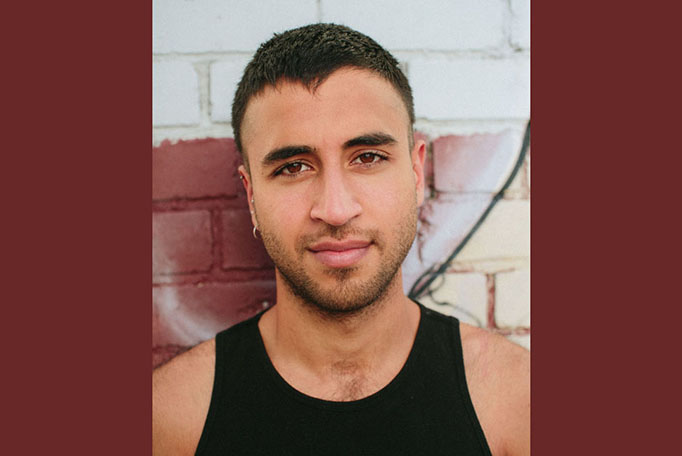Bobuq Sayed is an artist, writer, and editor born in Australia to Afghan refugee parents. A queer and non-binary person, the source that inspires their writing is being directly linked to the silences that surround stories of marginalities and expressions of difference.
Their research interests are centered around queerness, terrorism, security studies, and gender and sexuality. As an Afghan artist in diaspora, they are passionate about preserving the cultural heritage of their people and they aim to highlight the multiplicity of formations that different communities embody outside of typical identity labels.
Before entering the University of Miami’s Master of Fine Arts Program, they worked as a freelancer and artist in Australia for seven years. Their editorial work includes a three-year editorship at Archer Magazine, one of Australia’s leading journals on sex, gender, and identity. They also produced multiple writings in the form of poetry, lyrical essays, and short stories. Currently, they are working on a novel manuscript.
They talked to A&S News about their work, the creative process, and how they feature queer expressions and the lives of the Muslim queer community in their creative practice.
A&S News: You are currently writing your first novel manuscript. Can you talk a bit about that process
BS: It is quite an extensive process. I spent several weeks in Turkey over the summer doing research and beginning to structure the project. The creative thesis that represents roughly half of a literary fiction novel in progress is a degree requirement. Several faculty members in the English Department serve on a committee to share feedback, and they recommend suggestions for revision. From there, it’ll take a few years to finish writing the book, secure an agent, find a publisher, and print it. As I am writing about a community of queer refugees in Istanbul, I imagine I will need to travel back again several more times.
A&S News: You have published numerous works highlighting the lives and experiences of Muslim queer people. How was your experience approaching this topic?
BS: Too often, narratives of queer Muslims are shrouded in these Orientalist fantasies of shame and cultural repression, and I resist that. I’m more interested in the integrity, resilience, and multiplicity of people like me who learn how to shape-shift; those who fulfill varying, sometimes contradictory, social and sexual roles at the very same time.
A&S News: How has your time within the University of Miami’s MFA program contributed to your creative process?
BS: My time at UM helped me build discipline and internal motivation, which are crucial skills for a long-term project like a novel, which offers little immediate gratification. Also, coming from working full time, my time at UM helped shift gears back towards the unique valences of literary analysis and creative writing. There is such a wealth of knowledge among my teachers, students, and peers, and I have derived particular kinds of joy from staying with texts longer and more closely than I would if I were reading for leisure.
A&S News: Your work often features queer expressions which occupy different marginalities. How has being in contact with such subjectivities informed your view on queerness?
BS: There’s a common axiom that life is stranger than fiction, and this is true of the expressions of queerness and hybridity of the subjects that I write about. For some readers, it’s hard to believe that people live and thrive with so many marginalities stacked together, but it reflects my communities: people who exist on the fringes of society and who make the culture that often, eventually, coalesces into the mainstream. More than anything, the condition of marginality itself reflects a world designed to benefit some people over others, not any kind of intrinsic impediment belonging to a select few.
A&S News: What are your future professional, academic and artistic goals?
BS: I’m planning on pursuing a Ph.D. to continue the lifelong project of reading, teaching, and writing, alongside my own publications. Ideally, I would find some literary fusion with my previous work in queer mental health and suicide prevention. There are therapeutic qualities to learning how to write and share stories, and I’d love to facilitate workshops in communities to enable access to the art form as well as practical knowledge for pitching to magazines and becoming a freelance writer.

